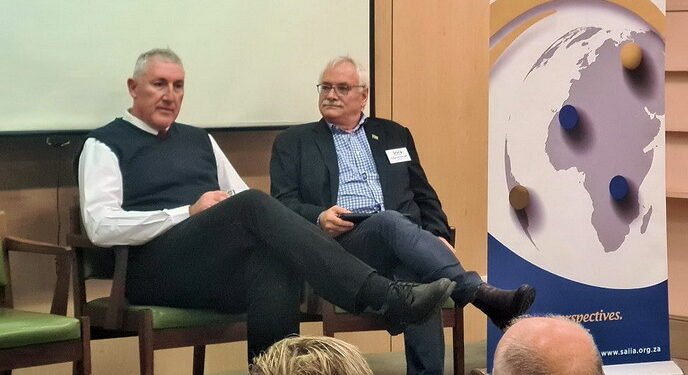
Without sufficient funding, South Africa should withdraw its soldiers from foreign deployments and focus on protecting its own air, land and maritime borders.
This is according to Kobus Marais, Democratic Alliance Shadow Defence and Military Veterans Minister, who was speaking at a 10 April South African Institute of International Affairs (SAIIA) Western Cape Branch discussion on the mandate of the South African National Defence Force (SANDF).
Marias was of the opinion that South Africa must withdraw its soldiers from foreign deployments and “protect its own air, land and maritime borders, restructure and rebuild our Defence Force and invest in new defence technologies as a force multiplier, as well as the maintenance, upgrade and replacements of our essential strategic prime mission equipment and technology. I do believe that if you do it correctly, we can do with a smaller Defence Force, but a much better technologically advanced Defence Force.”
He added that, “the availability of a well-planned, funded budget for the military focusing on the correct priorities is essential for the sustainable offensive and defensive capability of our country.” However, at present, the SANDF spends 70% of its budget on salaries, which is against the policy prescript of 40% as there is not enough money to follow the 40:30:30 rule of salaries:operating costs:capital renewal.
Marais emphasised the need for clear criteria guiding military deployments, rooted in national interests and foreign policy objectives. “Any action by our military…must be considered in terms of the mandate from the Constitution.”
Moreover, Marais underscored the impact of political transitions on defence policy, noting shifts in strategic priorities under different presidential administrations. He highlighted the transition from a strategy by design in the 1990s to a strategy by default in recent years, reflecting the broader challenges facing South Africa’s security landscape.
The military should be viewed as an instrument supporting foreign policy and trade interests, while also addressing serious threats to national security. However, deployments that do not clearly align with these priorities risk overextending limited resources and endangering soldiers, Marais said.
Following the deaths of two South African soldiers in an M23 rebel mortar attack in the Democratic Republic of Congo (DRC) in February, Marais said, “the reality is that the SANDF is currently unable to meet the requirements of foreign deployment because of its deteriorated state of combat readiness,” with troops in the DRC lacking air support and logistics.
The human cost of an under-resourced military means soldiers deployed on missions without clear objectives or proper support face undue risk. The declining morale and capabilities of the SANDF can also have a negative impact on national security, he told the SAIIA audience.










